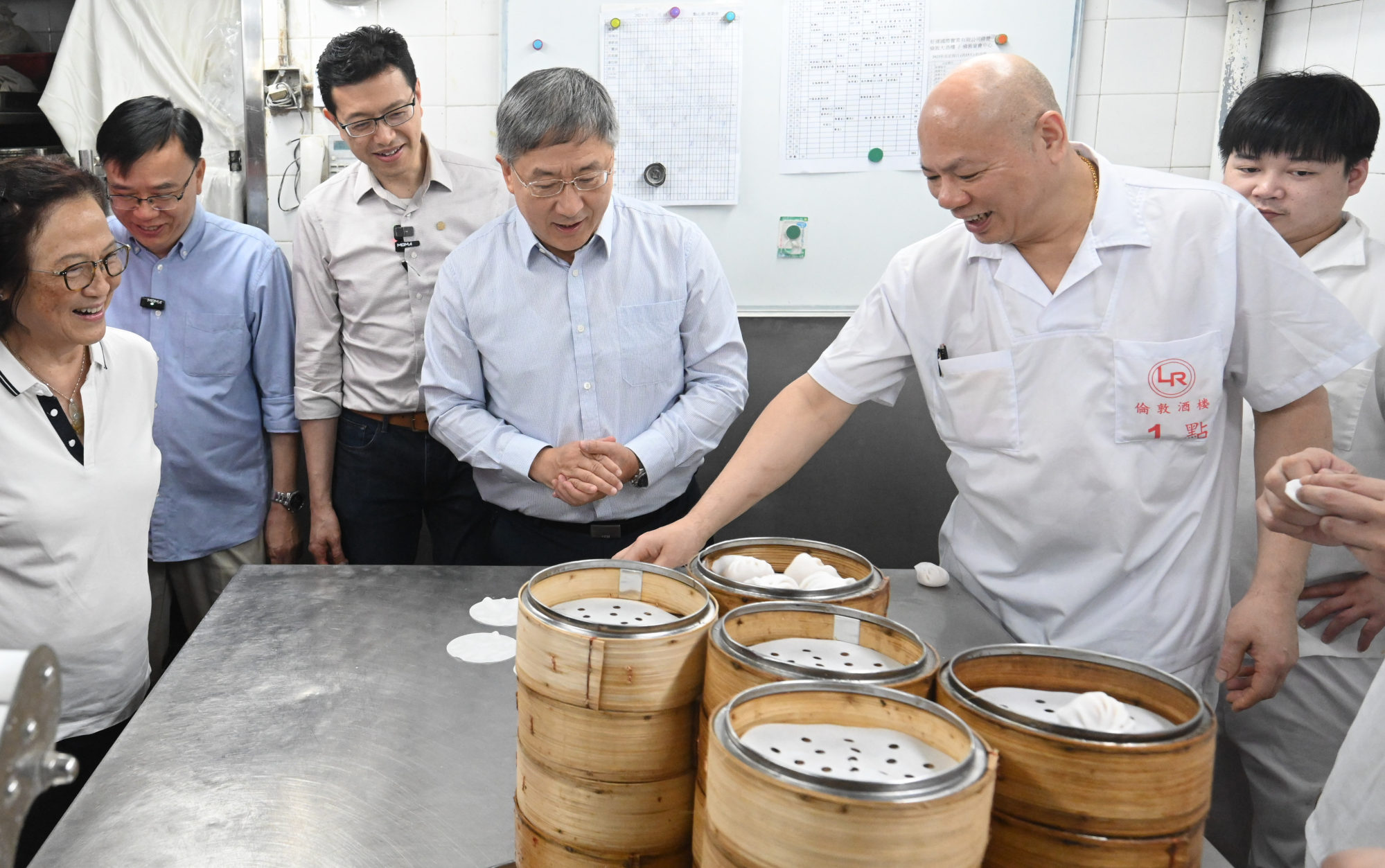
Hong Kong waste-charging scheme: trial run has revealed many ‘problems’, senior official says
- Deputy Chief Secretary Warner Cheuk hints full roll-out of pay-as-you-throw scheme will not go ahead in August without public consensus
- City leader John Lee, also visiting frontline workers on Labour Day, vows to review ‘every single element’ of twice-delayed scheme
Referring to the pay-as-you-throw initiative after visiting a restaurant in Mong Kok, Cheuk said: “According to our initial observations, there are many problems. We think that if we need to push ahead with the waste-charging scheme, we must have consensus and support from Hong Kong people.”
Cheuk, who heads an interdepartmental group overseeing the trial run, added that the city had to be ready on various fronts before the scheme could be implemented smoothly.
“This policy directly affects 7 million people in Hong Kong. We cannot [take it lightly],” he said.
The trial run began on April 1, covering 14 locations including public and private residential buildings, restaurants, residential care homes, shopping malls and government buildings.

The sites are provided with designated rubbish bags and labels free of charge during the trial run, with the government collecting operational data.
Officials earlier said it remained to be seen whether a full roll-out would go ahead on August 1 as planned. Authorities are expected to brief legislators on the test run later this month.
City leader Lee visited Lin Tsui Estate, a single-block public housing estate in Chai Wan that was selected for the test run. A video uploaded to Lee’s official Facebook page showed a cleaner telling him that her life had been made more difficult by initiative. “In the past, it took me three hours to finish [collecting the rubbish]. Now it takes six hours,” she said.
Lee looked surprised and replied: “I appreciate [your difficulties]. We will look into every single element of [the scheme] ... If you encounter any issues, please let us know.”
Hong Kong confirms halt on production of bags for waste-charging scheme
Another cleaner complained to Lee that her workload had increased by almost half.
Lee told her his administration was “aiming to do its best to handle problems, and hopes to be able to continuously make improvements”.
He also asked the cleaner to tell authorities if she encountered any other problems.
Yau Wing-kwong, chief executive of the Environmental Association green group, said many problems needed to be sorted out before the scheme was rolled out citywide, suggesting it be launched in phases.
“The law is already there. The government cannot just put it aside and do nothing as if there is no such law,” he said. “The government can roll out the scheme gradually, first starting with places where it is easier to implement the scheme, like government premises or big housing estates where the recycling rates are high.”
He agreed more supporting facilities should be in place to help people familiarise themselves with the rationale of the policy. “Unlike overseas cities, Hong Kong is very densely populated. You can’t just put a food waste machine for use by hundreds of families in several blocks,” he said.
“In rural areas, fallen tree leaves or so called plant waste can also be an issue. If villagers are required to collect the fallen leaves as if they were domestic waste, they will have to buy a lot of designated rubbish bags to store the leaves.
“It is also not convenient if villagers have to carry their rubbish every day to dump in rubbish stations. Could the government consider sending people to villages to pick up rubbish instead?”
In a separate Facebook post, the chief executive thanked all of the city’s workers for their hard work.
“I take the opportunity [on Labour Day] to show my tribute to all workers of Hong Kong. I thank all workers of all trades for their contributions to the prosperity and development of Hong Kong,” Lee said.
He also promised that his government would put forward more policies to benefit workers, such as a new formula announced on Tuesday for adjusting the minimum wage which barred any cut to the rate.

